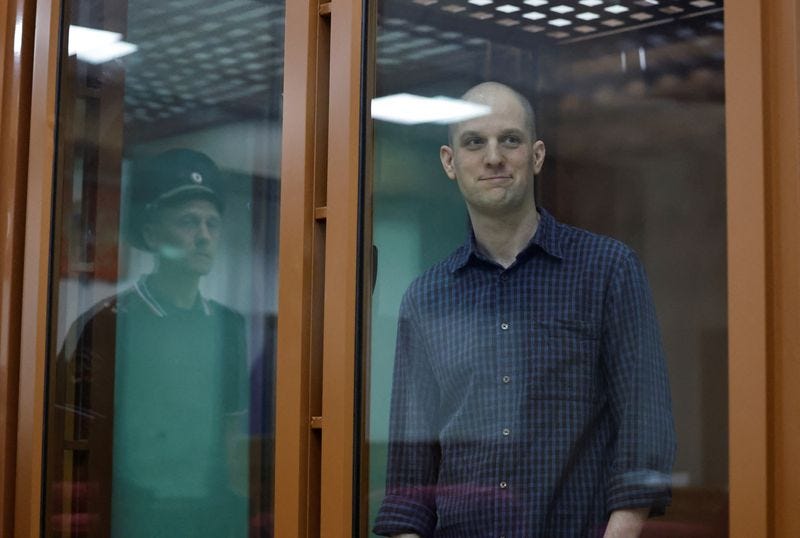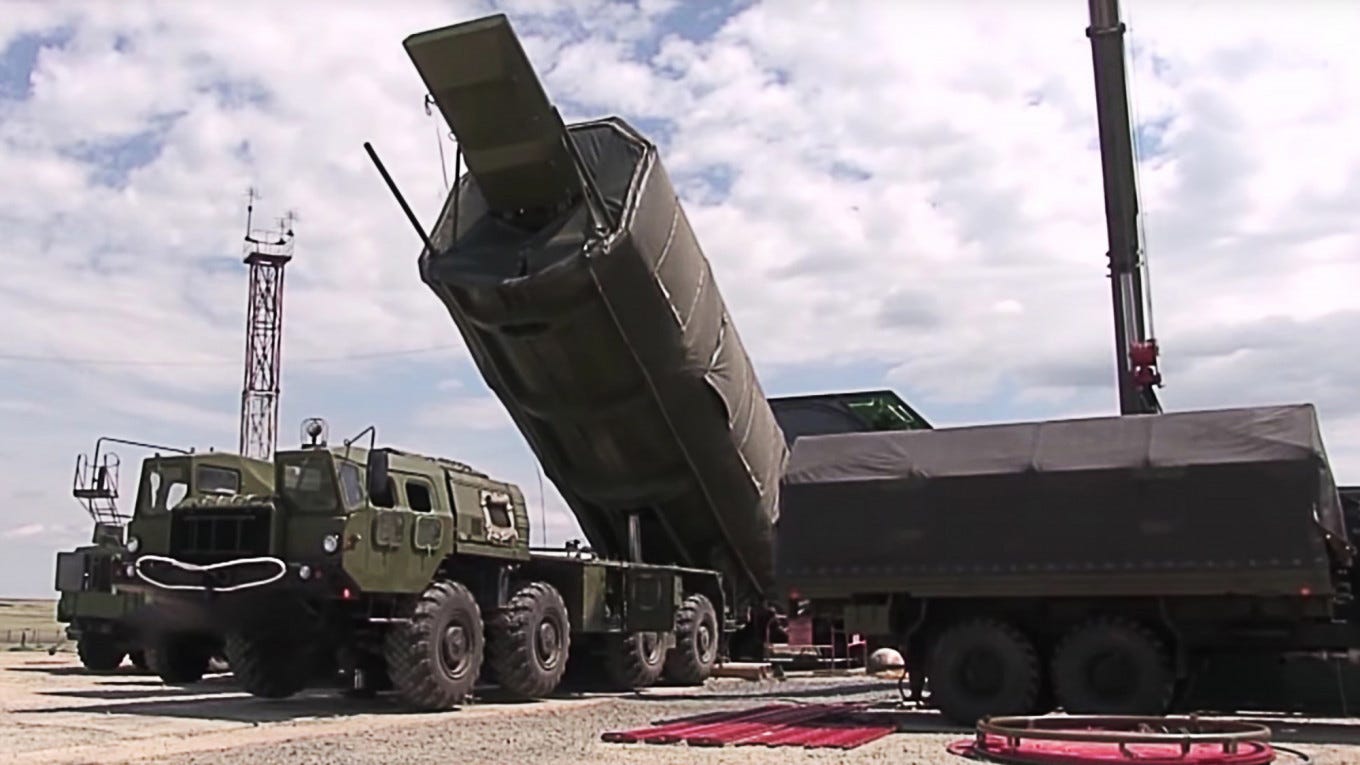Was Evan Gershkovich a spy?
It depends on who you trust.
The Wall Street Journal’s Evan Gershkovich was the most high-profile American released Thursday as part of a major prisoner exchange deal between the United States and Russia, which saw the transfer of dozens of alleged spies and activists between the two adversaries.
Gershkovich has spent the last year and a half in various Russian prisons. He was detained by Russia's FSB (somewhat equivalent of the FBI) in March 2023, and accused of spying for the United States government against Moscow. Since the beginning, the Biden Administration and The Journal have insisted that he was not a spy and had nothing to do with U.S. intelligence services. Nonetheless, last month, the Russians sentenced him to 16 years in prison, after being convicted of espionage.
By the way, I’m loving Techpresso, a free newsletter that covers the latest and most innovative tech news, tools and insights. It’s truly a can’t miss newsletter with over 100,000 readers, including many of America’s top tech leaders.
So, who are we supposed to believe? Was Evan Gershkovich a spy or not?
The answer is not as simple as it seems.
Let’s start with Gershkovich’s background.
The son of Soviet refugees to the United States. Fluent in Russian. Employed at all of the corporate media institutions (The New York Times and The Wall Street Journal) that sometimes partner with three letter agencies (wittingly or unwittingly) on the espionage front. Spent six years in Russia prior to his arrest. Reported on the war in Ukraine from a perspective that was a bit hostile to Russia’s position. It’s safe to say that he has ideal spy credentials, but so do a lot of people. We can’t rule him in or out .
For several years reporting in Russia, everything seemed to be going swimmingly for the WSJ reporter, until he started snooping around a little too much for the Russians’ liking, at least according to the Kremlin’s narrative of events.
Gershkovich had been “on assignment” in the Russian industrial city of Yekaterinburg, which is significant because it is home to many secret military endeavors, such as armored tank and hypersonic missile manufacturing, research, and development. Russian officials accused Gershkovich of collecting secrets on the "production and repair of military equipment," specifically, accusing him of trying to get a sense of Russia’s tank inventory. This information, if allowed to slip into the hands of Russia’s adversaries, would provide pro-Ukraine forces with a strategic leg up. American officials and The Wall Street Journal responded to the charges by declaring that Gershkovich was simply doing his job to make the public aware of the reality on the ground.
Now, I can see why Russia — whether or not Gershkovich was a spy — would be a little miffed by a publicly reported revelation of this magnitude. Imagine if some high-profile credentialed Russian journalist was staked out outside of critical American R&D military industrial centers, and attempting to learn the latest about our top secret Pentagon project. We too, would probably throw that guy in the slammer and make a similar accusation concerning his intentions.
Now, if you read in between the lines of both Western and Russian narratives, it appears that Russian intel caught wind of Gershkovich’s mission at Yekaterinburg, and conducted what amounted to a sting operation in order to both secure his arrest and catch him in a compromised state.
Putin’s comms staff said they caught Gershkovich "red-handed" as a spy, and Russian Foreign Minister Sergey Lavrov later said Moscow has “irrefutable evidence that Gershkovich was engaged in espionage."
As for the smoking gun evidence supposedly tying Gershkovich to the CIA and whatnot… it never emerged in public. Now, there could be an explanation for that other than the possibility that Russia was bluffing the whole time. It could very well have something to do with the lack of due process in Russia, where the security state takes preference over individual rights. Or the fact that Russian officials often don’t feel the need to justify the integrity of their judicial affairs to Western observers. But nonetheless, Moscow never really delivered the goods, despite deciding to convict and sentence Evan Gershkovich to 16 years in prison.
Further complicating things is the reality that the CIA and other U.S. intelligence services would never in a million years confirm if Gershkovich is “our man” or simply a reporter who happens to possess an ideal resume for a spy. And yes, a denial means pretty much nothing in this day and age. A “noble lie” for the sake of “national security” is a time-honored tradition in our country.
Was Evan Gershkovich a spy? While select people and institutions are aware of that ultimate answer, that conclusive evidence may never see the light of day.
Nonetheless, it’s unfair and illogical to call on Mr Gershkovich and his employer to prove a negative. And the Russians never made the definitive case that he was working for the CIA. So, therefore, a responsible observer would have to give him the benefit of the doubt until proven otherwise.
Our verdict: Innocent, because the prosecution failed to demonstrate that he is a spy.






Is the Pope an Argentine Marxist and globalist factotum?
The deal was negotiated between CIA and the Russian security agencies. I very strongly doubt that the CIA would have gotten involved if it was just an innocent journalist.